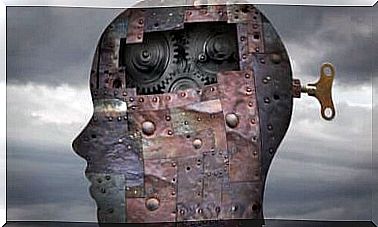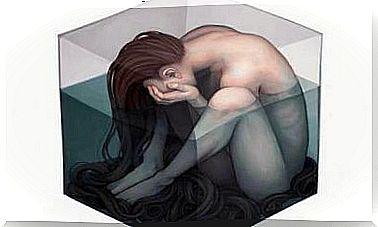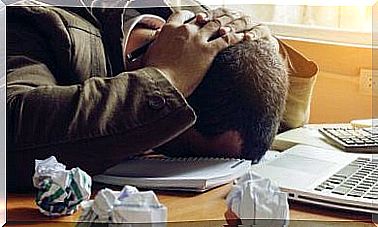Learned Impotence Ends The Will To Fight

Human beings learn that they cannot do anything in certain situations, and that is why they do not act with the intention of changing them. This impotence in relation to what happens can have several starting points or agents that contribute to maintaining it, such as fear, lack of commitment or low self-esteem.
The concept of learned helplessness in psychology is mainly associated with a name, that of Martin Seligman. This popular psychologist and researcher carried out several experiments with animals, in which he gave unpleasant electrical discharges.
Sometimes it gave them the possibility to avoid them by pulling another lever, and other times they were independent of what they did. Well then, the animals that learned that there was no connection between the lever and the discharges stopped acting.
impotence leads to despair
Continuing with Seligman’s experience, we can state that changes in animals’ habits are related to the lack of perception of contingency between their attitudes and the result. For these animals, the damage had become uncontrollable, and so they got used to suffering it.
This same research was done with human beings to see if something similar happened. Loss of control over the environment or the expectation of lack of control appear when the person took several actions to get out of a situation and failed. The person wears out and there comes a time when the strength runs out and he says to himself “if it has to be, it will be”.

However, it doesn’t end there. This feeling of abandonment usually happens in other situations, as the perception of control is greatly altered. The thought is clear: if I can’t change anything, why act?
If we come to the conclusion that the problem is within us, our self-esteem automatically declines. But if the situation is the result of an external factor, we lose control and become depressed. Now, depression is an emotional factor that develops only when the lack of control refers to something we crave or desire very much.
A complementary theory to the one initially established by Seligman points out that the depressive state is due to the lack of hope of improving or changing this specific situation. If we have a negative expectation about this important event, and besides that there is nothing that can be done about it, we lose hope. So, it becomes very difficult to be able to change that feeling. And that causes a lot of pain.
The impotence learned in everyday life
Besides talking about theories or concepts of psychology, it is good to know what are the chances of going through this problem in order to solve it. Learned impotence is a mental and emotional process that causes us to act in a certain way based on stimuli or past experiences.
It tends to be very present in those people who were raised under a very authoritarian regime, with frequent punishments and few rewards. When we are constantly reprimanded and no matter what we do, we stop responding. This also happens when these rewards exist but are independent of what we do. Hence the importance of awards and the time to offer them when we are educating someone.
“Why am I going to try to improve my grades if my father is going to fight me anyway?” It can be a clear example of this problem that starts in childhood and continues into adulthood.

What happens when circumstances change and we’re faced with someone who doesn’t hit, punish, or scold? If impotence is already too established in the mind, it will be very difficult to act in any way other than the one learned. For an action, there is always a reaction. The good news is that changing this habit can take time, but it’s not impossible.
Impotence on the surface
Having a boss who makes life impossible, being bothered every day at school, having a mother-in-law or a very authoritative father are some of the frequent situations in which a person can develop or reinforce their learned helplessness. The fact of not defending yourself in the face of injustice, beatings or words does not mean being weak or shy, but not being able or not knowing how to face them.
If, since childhood, a person has been badly treated at home or at school or has been subjected to acts of physical or psychological violence, it is more likely that they do not defend themselves, that they are depressed and hopeless. But this does not only happen at home or in academia and during childhood: it is also present in the professional and personal world, such as in the couple.
It is very common for someone impotent to say “this is the luck I took and it doesn’t matter what I do, because nothing will change”. In this way, the person stops fighting for rights, integrity and pride. Thinking that we do not have the possibility of improving a situation and that we are irremediably vulnerable turns us into passive and conformist beings.

If you feel that you have a certain predisposition to having this impotence learned, it is best to consult an expert. Little by little and working on aspects such as self-esteem or resilience, you will be able to re-educate your thinking to resist and find solutions for those situations that are more complex or that demand a lot of patience.








